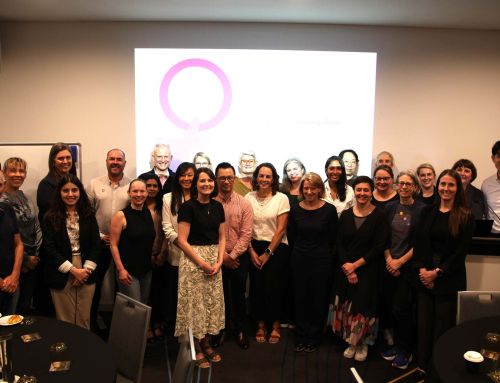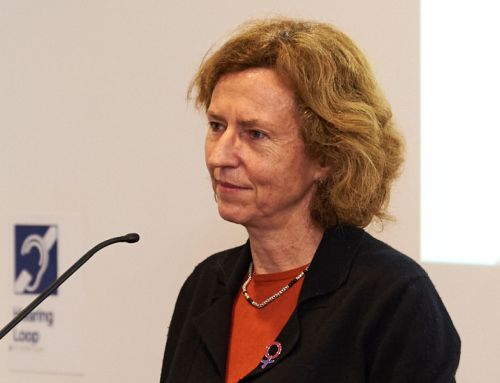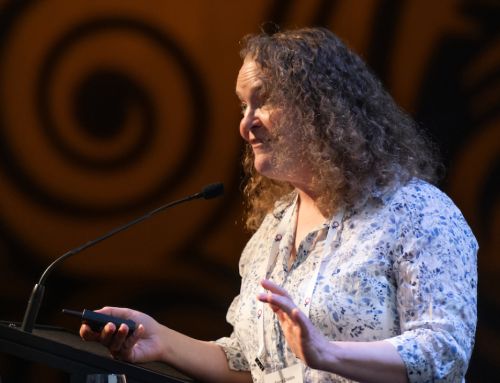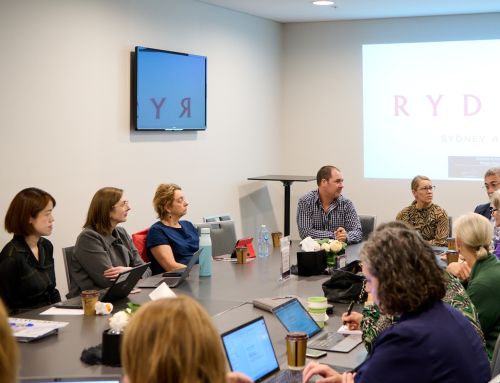As part of Ovarian Cancer Awareness Month, we speak to Assoc Prof Tarek Meniawy – Chair of ANZGOG’s Ovarian Cancer Working Group. Assoc Prof Meniawy is a Medical Oncologist at Sir Charles Gairdner Hospital, and a Clinical Senior Lecturer at the University of Western Australia. In this article, we asked Assoc Prof Meniawy about his career and how he first got involved with ANZGOG…
What did you want to be when you were growing up?

Assoc Prof Tarek Meniawy
From what I recall of early primary school, we were often asked on the first day of the year to introduce ourselves to our classmates, to talk about our summer holidays, and what we wanted to be when we grow up.. My answers varied between astronaut, mathematician and doctor. As I got older the first two got dropped.
Why did you pursue a career in Medical oncology?
During my 4th year of med school, I was introduced to the field of Medical Oncology both from a rotation but also on a personal level. I had an opportunity to interact with some wonderful clinicians and was most impressed by the dedication, expertise, care and empathy that they demonstrated towards people who were in a very vulnerable situation. It became clear that cancer didn’t differentiate between the young and the old, the fit and healthy and the frail, or the rich and the poor. Everyone was affected and everyone needed not just the skills and knowledge of their oncologists, but also their guidance, support and kindness. It was the influence of these amazing people that made this career choice a very natural one.
How and when did you first get involved with ANZGOG? What does being a member of ANZGOG mean to you?
I joined ANZGOG in 2014 when I started working at Sir Charles Gairdner Hospital, which is the main tertiary centre for Gynaecological Medical Oncology in Western Australia. It was therefore important that I connect with the key national research group in the field so that I can continue the state’s contribution to the national and international effort, as well as learning from the established body of expertise and experience that ANZGOG represents.
Being a member of ANZGOG means being part of a big family of dedicated people that share the goal of improving outcomes for women with gynaecological cancers. It means sharing ideas and learning from others, mentoring and being mentored, and working with a diverse and passionate team which is an experience that continues to be thoroughly rewarding.
“It became clear that cancer didn’t differentiate between the young and the old, the fit and healthy and the frail, or the rich and the poor. Everyone was affected and everyone needed not just the skills and knowledge of their oncologists, but also their guidance, support and kindness.”
What do you think will be the biggest change in cancer research over the next 5 years?
While I am biased on this question (due to iPRIME), I do believe that cancer immunotherapy has been one of the biggest game-changers in cancer research to date. I think this trend will continue and hope that gynaecological cancers will gain further benefits from immune-directed approaches than we have had so far. There is no doubt that further efforts towards personalised therapies in gynaecological cancer also hold great promise. I think we will keep building on the vast expertise within our group and their research to identify cancer pathways that may be targeted for future treatments.
Your favourite place in the world?
Anywhere that is ‘underwater’, preferably with abundant marine life! Possibly topping that list would be the ‘Brothers Islands’, which are two small dive sites 67km off the Egyptian coast in the Southern Red Sea. The sight of a 100 schooling hammerhead sharks circling above you is one to behold!
Tell us something that fellow ANZGOG members may not know about you…
In another life (not so long ago) I was a dive instructor for a few years, both on the Red Sea and then the Great Barrier Reef.
What has been the proudest moment of your career so far?
It would have to be the moment iPRIME matured from an idea and concept to a funded ANGOG study in 2017. The support and mentoring from ANZGOG staff and members (Michael Friedlander’s guidance was indispensable) was instrumental in enabling an early career researcher to lead one of a handful of first-line ovarian cancer studies that ANZGOG has initiated.
How will women benefit from research you’ve been involved with?
I think that this benefit will most likely come through a gradual build-up of many small parts that we each play in research that we’re involved in. This could be through being a site investigator for an ANZGOG or pharma study, giving feedback on a study concept or translational program, supervising research students and fellow projects, or being involved in grants led by other researchers. The biggest benefits will come from the collective effort of many and this is why I am passionate about working with others.
Assoc Prof Tarek Meniawy is the Principal Investigator for iPRIME, a clinical trial for patients with advanced high grade Serous Ovarian, Fallopian Tube and Peritoneal Cancers. For more information on this trial, click here.
If you’re an ANZGOG Member, fundraiser, supporter, or cancer survivor; if you’d like to share your story with ANZGOG, please get in touch with hnesfield@anzgog.org.au.











